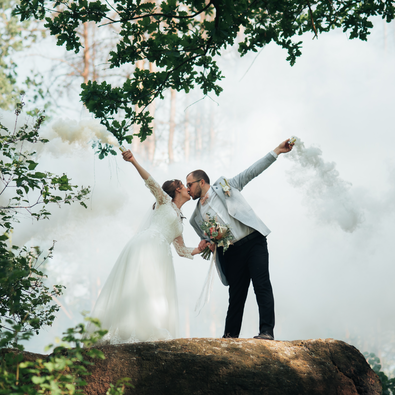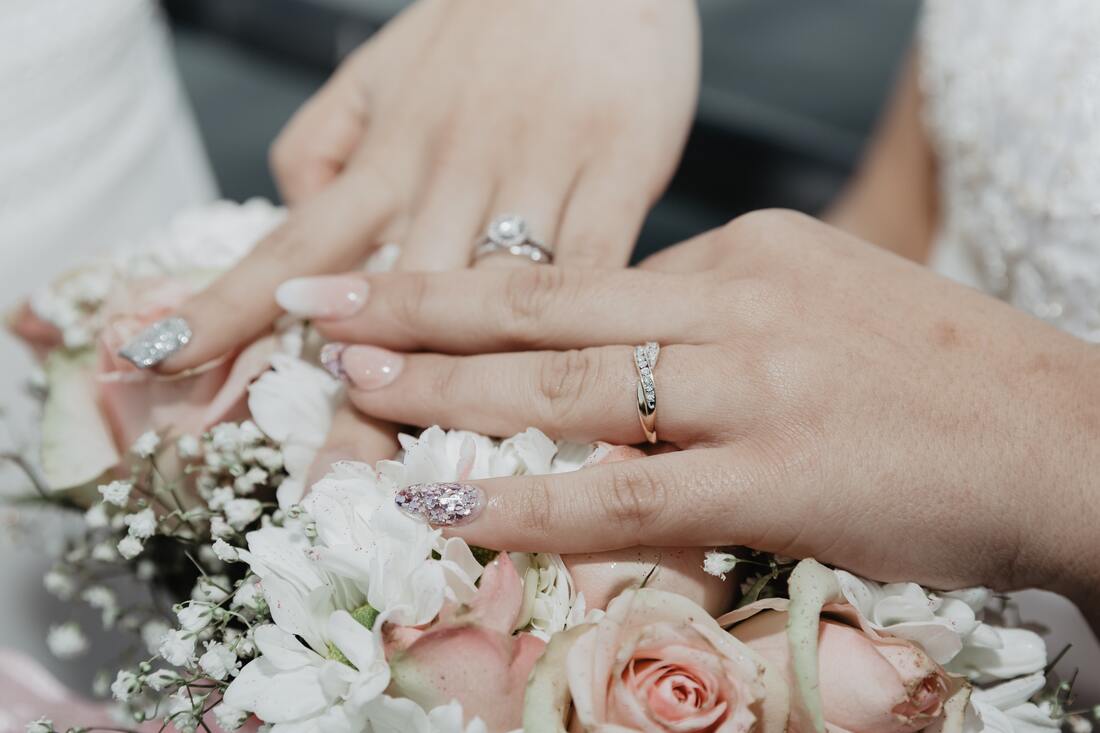|
The most-asked questions about funerals…
…are to do with when they are held. This is either searching when an upcoming service IS taking place (See Facebook post of 7 Aug 2023 for tips), or when it MAY or CAN be held. Can you have a funeral on a Saturday? Can you have a funeral on a Sunday? A twilight funeral? What about alternative locations for funerals? These are some of the popular questions. So, here are 20 factoids you need to know: They refer to funerals in England - there are different arrangements elsewhere. 1. Most funerals take place on weekdays typically between 9 – 4 2. Friday is the most favoured day - as it's more practical for arranging leave before the weekend. 3. Popular times are late morning & around lunch. These will book up fastest. You may have a wait if there's a particular day and time you have in mind. 4. Weekend funerals may be offered by churches, some crematoria & funeral directors at request. This may incur extra charges. 5. Some crematoria have ‘dynamic pricing’ – popular ‘slots’ cost more. 6. Shorter crem services, those for committal only, or unattended services (direct cremation), are cheaper. Ask your local bereavement services if the fees vary between days, times, and service chapels. 7. You may separate final disposition (what happens to the body) from ceremony (the celebration of life) and have them on different days. This can save money, distress and the rush to make arrangements. 8. Crematoria vary in the services available daily, due to the standard service length at each – from 20 minutes to 1 hour. Some worry that shorter services give a production-line feel, especially if mourners leaving and arriving cross. There are more options to avoid this. 9. Funeral days/times are a compromise between your preference, and logistics (e.g., how busy your funeral director is & their prep & travel between services – many independents have just 1 hearse). 10. Burial times may depend on season – with a shorter window as it gets dark earlier. Natural/green burial sites will advise you on the practicalities of a burial at their site. 11. Funeral celebrants offer the greatest flexibility over day, time (including twilight services) & location of farewelling, so contact them first. 12. Most UK funerals take place 2-3 weeks after a death. 13. Many religious funerals within 24 hours if practicable (Muslim, Hindu, and Jewish – but not on Shabbat), or a few days (Catholic). 14. There are more options for burial than you might think. You can be buried on your own land (subject to some regulations) .Even if you are not religious, you may be buried in your parish church, if there’s room. 15. Funerals may be delayed if a coroner’s report is required (not needed if a person dies within 4 weeks of being seen by a doctor for a condition) 16. For special requests, there may be a lead-time to factor in (e.g., availability of a themed hearse, custom-order coffin or shroud) 17. You may choose ANY crematorium. It doesn’t have to be the local one. 18. You may choose ANY location for the service, full stop! 19. Some funeral homes have their own service chapel. This may give you more privacy and an intimate feel. 20. Funeral celebrants specialise in alternative locations, such as a service at home, the village hall, or a venue barn or outdoor space (they’re not just for weddings!).
0 Comments
Now I have your attention, let’s look at the most common FAQS about getting hitched. How much is a wedding?Let’s break that down into its two aspects – getting married, and having a wedding celebration. I’m omitting faith marriage here, and referring to the law in England/Wales. Getting marriedHow much does it COST to legally register a MARRIAGE? It depends on how the type of ceremony you choose and where it is held. The cheapest option is the STATUTORY civil ceremony, conducted at a register office. There will also be registrar-led ceremonies conducted elsewhere &/or with some scope for personalisation which cost more. These may have a name like Enhanced ceremonies or Celebration ceremonies. How can I SAVE MONEY getting married? Book a statutory ceremony. You may: book only a statutory ceremony at the register office, follow a statutory with a reception at a venue of choice, or a have a celebrant-led ceremony at any venue or location. What is a STATUTORY civil wedding ceremony? This is the legal minimum needed to register your marriage, conducted by a registrar. It’s also called a two-by-two (2x2) as it comprises the couple and 2 witnesses only. You have a LEGAL RIGHT to this for your marriage or civil partnership. HOW MUCH is a STATUTORY civil wedding ceremony? The fee is set by government. It’s approximately: 50 pounds 50 words 15 minutes Plus, the fee to give notice - about £35 each. HOW do you book a REGISTRAR to marry you? Go to the government website for information on the process and documents you need, and contact your local register office(s) through the links: https://www.gov.uk/marriages-civil-partnerships/plan-your-ceremony Is it hard to BOOK a statutory wedding ceremony? It depends where you live. Some councils may not offer it at ALL register offices in the district. Some council websites make it hard to find the information you need. Some councils may say they only offer the more expensive ‘enhanced’ ceremonies. Some councils may offer it only on a limited number of set times or days each month. Some councils may be booked up many months ahead. Some councils may not let you book far ahead. Remember: you have a LEGAL right to access a statutory ceremony. But some councils don’t make it as easy as they could. You may prefer to give notice locally and have your legal registration somewhere else, wherever you can get in. Enquire as soon as you can. What if you have PROBLEMS booking your wedding? I hope you don't, but if you do, complain. Ensure you follow up calls with registrars with an EMAIL recapping the problem, and what you were told (or not told), and state that you are aware you have a legal right to access a statutory civil marriage, if that is what you want. Keep a record. If you had planned to have a registrar at venue and they are booked on your preferred day, swap to a celebrant-led ceremony at the venue. If you change your mind from having a registrar ceremony to a celebrant-led wedding, ask your celebrant how to swap from a statutory if you’re unsure. Ask a celebrant what to say when contacting the register office so you get what you are entitled to, if you encounter problems. What OTHER COSTS are there when getting married? Anything else you pay above the cost of a statutory ceremony is OPTIONAL, and is part of your WEDDING, not the legal formalities. This includes those you’ll know about - venue, food, drink, décor, flowers, photographer, entertainments, transport, honeymoon, wedding attire etc, which many blogs cover. For the costs of the ceremony itself, you may have: Enhanced registrar ceremony (limited options to personalise the set script, subject to registrar approval, and guests allowed to attend) at one of these two: Registrar at council ceremony room (a nicer or bigger room will cost you more) Registrar ceremony when attending a licensed-for-marriage venue (the same standardised ceremony, but hundreds of pounds more for attendance) Or: Statutory registration followed by a celebrant-led ceremony (complete personalisation, and complete freedom of choice over venue/location, time and ceremony content, with a fully tailored ceremony and your rituals of choice delivered by a professional ceremonialist) Wedding celebrationHow much is a WEDDING? How much you spend celebrating is up to you. Decide your budget, and scale accordingly, whether you are going simple, about £5K, mid-range, about £20K, or upper-end, about £55K. A large chunk of that may be venue cost. Simple wedding costs can be kept low – non-licensed-for-marriage function rooms can be hired for free or a nominal sum, plus your costs of decorating, laying on a spread and hiring a celebrant if you desire one. Mid-range all-inclusive packages at venues may be £3-15K before adding on registrar attendance fees, and the sky’s-the-limit for high-end luxury weddings. Celebrant costs are similar to registrar-at-venue costs, although the service quality and value-for-money are greater. What’s the DIFFERENCE between getting married and a wedding? Marriage refers to the legal contract between a couple. A wedding is the complete experience of a celebration of getting married. Celebration is distinct from legal registration. Just as with welcoming a child, there is a Christening or naming ceremony that is separate from the day you register the birth: it’s the same with marriage and a wedding celebration. The WEDDING CELEBRATION is how you personalise the marking of getting married. How much is a WEDDING CELEBRANT? For a professional, qualified celebrant creating and delivering a custom celebration, expect to pay £500-800 (average cost was £650 in 2020), but it could be £1000 for specialised ceremonies or high-end wedding celebrants. Fees are set individually and will vary with experience, expertise, and distance. A rule-of-thumb is for whatever price band photographer you are budgeting for, expect to pay half to equal to that for your celebrant. Is a celebrant wedding LEGAL? In England and Wales in 2023, not yet! You’ll need to have a statutory registration with a registrar for a marriage or civil partnership. There is no legal aspect to anniversaries, vow renewals or commitment ceremonies – go straight to your celebrant. Is a celebrant wedding REAL or FAKE? It’s a real wedding celebration – it’s not a legal registration of marriage. It depends what you define as wedding. If it’s celebrating your love with your partner with family and friends in a way that is meaningful to you, then absolutely, yes, it’s as real a wedding as you’ll get. Isn’t a REGISTRAR a celebrant? No. There will be two registrars present to legalise a marriage. One will lead the ceremony, and one will oversee it. Misleadingly, some councils refer to the registrar reading the templated script as a ‘celebrant registrar’. They are not what most people understand a celebrant to be: that is, a professional qualified ceremonialist who gets to know you well over time, and who creates an entirely unique ceremony for you. A registrar is a council employee, who you will not meet until the day itself just before they read the standardised script with your name inserted. They do not create it for and with you. You do not get to choose them. You cannot check the quality of their ceremonies, and you will not know what yours will be like. Is MARRIAGE LAW changing? Yes! Marriage law will be reformed soon. The Law Commission report on recommendations for marriage reform is here: https://www.lawcom.gov.uk/project/weddings/ How do I COMPLAIN about the register office service? If you have issues organising your marriage, or the ceremony delivered, email a complaint to the council, and contact them on their social media pages. If they do not know there are problems with booking a registrar, or the quality of service received, they cannot improve things. Write to your local MP and explain the issues with availability of registrar marriage services, and how legalising celebrant weddings (independent and humanist) will give couples more access, choice and personalisation. The GCCM page has a template letter you can use. Visit: https://gccmovement.org/ How do I SUPPORT legalising celebrant-led marriages? Consider contacting people and organisations who are involved in the reform of marriage law, and follow the links below if you are still planning, or wish to have more choice and flexibility for your wedding. Visit the GCCM link above for information and to download the badge to share on social media to show your support. If you are happy to share your experiences with a celebrant organisation so they may be used to campaign for change, you may also wish to contact the AOIC: https://independentcelebrants.com/contact-us/ How do I FIND a celebrant? Search for ‘celebrants near me’ or ‘wedding celebrants’ and you’ll find celebrants’ websites and celebrant directories. Follow a few on social media for tips, and regularly engage (double-tap, heart react, add a comment or question) so you will continue to see tips to help plan your wedding or celebration, and updates on marriage law reform. Many thanks for reading the blog. If there was a question I missed, get in touch and I'll be happy to help.
Happy wedding planning! Dx |
From DawnWelcome to the blog. Contact me if there's anything you'd like me to cover about celebrants, ceremonies (including weddings, namings, funerals) or related topics such a s vow writing, funeral planning etc. Archives
July 2024
Categories
All
|




 RSS Feed
RSS Feed
